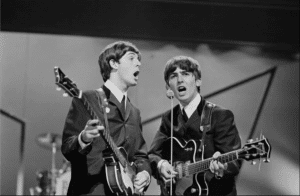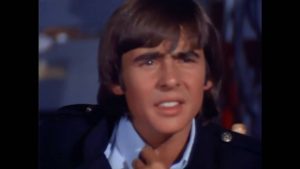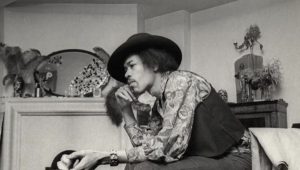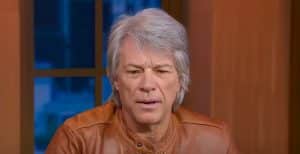Drummer Kenny Aronoff Explains Why John Mellencamp’s A Jerk
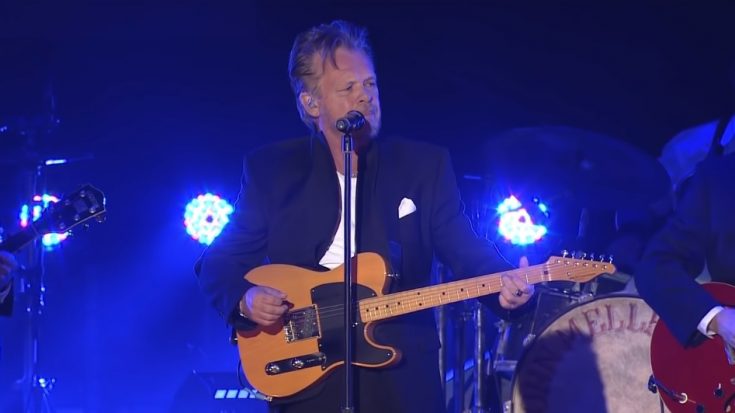
John Mellencamp at the AT&T Playoff Playlist Live! 2016 - FestivalsTube / Youtube
During a recent conversation with Backstage Pass Rock-News, session musician Kenny Aronoff talked about his experiences as a member of John Mellencamp’s band, shedding light on the various highs and lows encountered during their collaboration.
Aronoff candidly discussed how Mellencamp’s relentless quest for radio-friendly hits throughout the ’80s and ’90s played a significant role in shaping his perceptions of the acclaimed singer.
The drummer not only reflected on the challenges associated with this pursuit but also provided insights into the profound impact it had on his own thoughts and perspectives concerning Mellencamp as a musical collaborator.
In one instance, Aronoff recalled when Mellencamp pushed the band to adhere to a “Super Bowl mentality” of making hits, and it had the drummer commenting, “‘What a jerk!’ But he was right. Emotionally, I was like, ‘Wait a minute! It’s about me!’ He was right.”
“That’s Super Bowl mentality”
Aronoff recollected how Mellencamp tasked their band with generating ideas for chart-topping tracks, revealing a pivotal moment of realization. The drummer recounted how he had an epiphany.
“Suddenly, I realized, ‘Oh my God! This is not about me at all!’ This is about me getting a song on the radio. What is my contribution to that song, to that artist? What can I do as a drummer and a person to get that song on the radio to be number one?”
He then described this energy as “Super Bowl mentality”, and that’s what Mellencamp was all about according to Aronoff.
“That’s Super Bowl mentality. You’re not thinking about you; you’re thinking about the team, the song, the artist. It’s not about me!”
“‘What a jerk!’ But he was right”
Describing Mellencamp’s directive, Aronoff continued, “That was a huge revelation for me, and that is what made me who I became. So, he was right. I need ideas to get these songs out on the radio to have hits.”
The drummer went on to quote their conversation, saying, “He said, ‘Kenny, if somebody has a better drum beat, then what you’re playing, you play it, and everybody in this band, you don’t own your instruments. We all play each other’s instruments. Whatever it takes to get a number one hit.’”
Reflecting on Mellencamp’s approach during that time, Aronoff remarked and couldn’t help but call the solo rocker a “jerk” despite also realizing that the latter was right.
“He walked out of the room, and I thought, ‘What a jerk!’ But he was right. Emotionally, I was like, ‘Wait a minute! It’s about me!’ He was right. He says, ‘What do we as a group need to do to get on the radio and beat out Tom Petty and Billy Joel and Sting and The Police and [Bruce] Springsteen and Elton John?’ There’s only ten slots. The top ten.”
Aronoff’s challenges and eventual departure
According to Aronoff, collaborating with John Mellencamp presented its own set of challenges. The extended studio hours and the constant demand for availability strained the drummer’s relationship with the singer, impacting his commitments with other artists like Don Was.
In a discussion with Vintage Rock Pod, Aronoff shed light on this aspect, explaining, “All of a sudden, my cred went up outside of John Mellencamp, and I suddenly realized I had two careers. This is where the conflict came in because I was on a very small retainer. I took myself off the retainer with the idea that if he calls, I’m not a retainer anymore.”
Discussing the eventual separation from Mellencamp’s band, Aronoff commented, “I get it. I mean, John wanted a drummer that was accessible 24/7, and I was becoming that guy that was not accessible 24/7. And eventually, we just parted ways.”
In 1996, after 16 years of collaboration, Kenny Aronoff departed from Mellencamp’s band, with Dane Clark stepping in as the new drummer. Throughout the ’90s, Aronoff engaged in numerous collaborations, including artists such as Joe Cocker, the Rolling Stones, and Richie Sambora.







